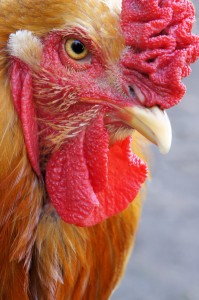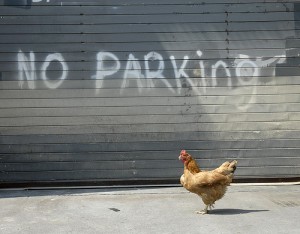Urban Chicken: Keeping Poultry at Home
 As the “locavore” movement continues to blossom across the country, it’s no longer only rural citizens who have access to less-industrialized food options: even residents of cities are finding ways to grow their own produce, or at least acquire it from nearby sources. This provides more economical and healthy options for cooks. A part of this movement has been the choice of some urban homesteaders to raise their own poultry.
As the “locavore” movement continues to blossom across the country, it’s no longer only rural citizens who have access to less-industrialized food options: even residents of cities are finding ways to grow their own produce, or at least acquire it from nearby sources. This provides more economical and healthy options for cooks. A part of this movement has been the choice of some urban homesteaders to raise their own poultry.
The Centers for Disease Control & Prevention (CDC) currently has a page on its website with helpful information about Keeping Backyard Poultry. The major point that the CDC addresses is the prevention of the spread of Salmonella, an illness that is transmitted in a variety of ways. It can be spread through contact with poultry (or any birds), including?áchickens, ducks, geese, and turkeys.
Salmonellosis is an infection with the bacteria called?áSalmonella.?áMost persons infected with?áSalmonella?ádevelop diarrhea, fever, and abdominal cramps 12 to 72 hours after infection. The illness usually lasts 4 to 7 days, and most persons recover without treatment. However, in some persons, the diarrhea may be so severe that the patient needs to be hospitalized. In these patients, the?áSalmonella?áinfection may spread from the intestines to the blood stream, and then to other body sites and can cause death unless the person is treated promptly with antibiotics.
The elderly, infants, and those with impaired immune systems are more likely to have a severe illness. The CDC highly recommends hand-washing and careful hygiene to anyone handling live poultry or poultry products such as meat or eggs. All poultry and poultry-related equipment and supplies should be considered contaminated even if the animals look healthy.
Interestingly enough, the?áTimes-Picayune?ápublished an article?álast year that examined troubles with feral chicken populations which have grown since Hurricane Katrina. Recently, local ABC affiliate WGNO-TV covered a story about the difficulties in catching feral chickens in the city. New Orleans has its own special set of issues when it comes to the cosmopolitan bird.

 myLSUHSC
myLSUHSC